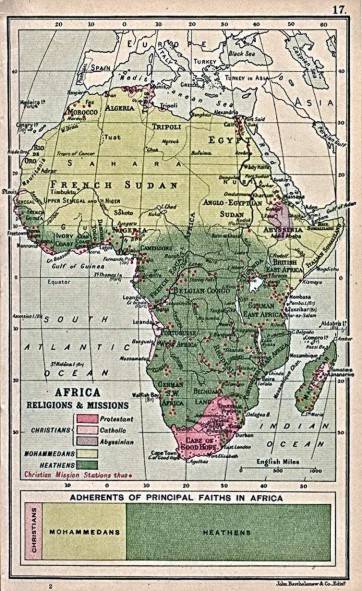| European
political and economic control over much of the globe. |
 |
Colonialism began
with the era of European exploration; in 1493 a Line
of Demarcation assigned to Spain and Portugal spheres of influence
in the Western Hemisphere and West Africa. France, England, and other
countries soon vied for territory in North America. The zenith of colonialism
came in the late nineteenth and early twentieth centuries, when most of
Africa and Asia were under European economic or political control. Renewed
evangelism in Africa took place at this
time, in large part through the efforts of mission
societies. The aims of missionaries often placed them in conflict
with colonialists who sought only profit and political control. To be
sure, some missionaries believed that it was their duty to bring western
civilization to the world, yet many others learned and preserved tribal
languages, translated scriptures, and adapted their way of life to their
surroundings. Training local Christians who could shape and lead their
own communities was a high priority for many missionaries. Colonialism
began to weaken after World War I and was rapidly dismantled after World
War II.
|